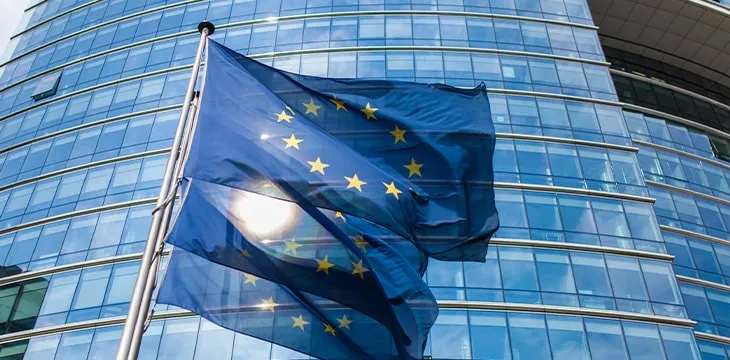|
Getting your Trinity Audio player ready...
|
Lawmakers in the European Union (EU) continued to press the issue of digital asset regulation on Monday, July 4, with members of the European Parliament proposing new amendments to the Union’s anti-money laundering legislation which would bring NFT exchanges within the bloc’s new AML/CFT framework.
The proposal forms part of a broader push by EU leadership to strengthen and modernize protections over the financial system, focusing on combating money laundering and terrorism financing.
Last week, EU lawmakers reached a deal on the proposed MiCA (Market in Crypto Assets) rules, which will amount to a new and comprehensive regulatory regime in the EU for digital assets with a particular focus on market abuse and manipulation. The same week, the European Council published a partial position paper on a soon-to-be-established Anti-Money Laundering Authority (AMLA) for the EU—one which would have direct authority over high-risk digital asset service providers and designated “obliged entities.”
“Recent developments on this quickly evolving sector have confirmed the urgent need for an EU-wide regulation,” said Bruno Le Maire, French Minister for the Economy, Finance and Industrial and Digital Sovereignty.
“MiCA will better protect Europeans who have invested in these assets, and prevent the misuse of crypto-assets, while being innovation-friendly to maintain the EU’s attractiveness. This landmark regulation will put an end to the crypto wild west and confirms the EU’s role as a standard-setter for digital topics,” he added.
NFTs were conspicuously absent from last week’s proposals. However, on July 4, the EU published proposed amendments that would extend the new rules to cover entities dealing in NFTs.
Specifically, the NFT amendment would classify digital asset service providers that are “trading or acting as intermediaries for importing, minting, sale and purchase of unique and not fungible crypto assets that represent ownership of a unique digital or physical asset” as obliged entities subject to the newly established AMLA and the incoming, new AML regime. For example, this would potentially mean that exchanges trading in NFTs would be subject to the same stringent identity checks and transaction reporting requirements as other obliged entities, such as banks, must do.
The development will put a pin in whatever relief NFT-fanatics may have felt after NFTs were left out of the proposals announced last week.
NFTs have exploded onto the digital asset scene in the last 12-18 months, with the most expensive NFTs initially selling for tens of millions of dollars. The excitement around such sales has contributed to a vibrant secondary market. Though NFTs can offer practical functionality, that functionality does little to their apparent market value. As a result, the NFT market is considered by many to be particularly vulnerable to being leveraged for money laundering.
Consumer welfare is also a concern for regulators. OpenSea, a major NFT marketplace that would be captured by the amendments, is facing civil lawsuits over ‘stolen’ NFTs. In other news, a former OpenSea employee was charged with insider trading by the U.S. Department of Justice in June.
Against that background, the regulation specifically addressing NFTs seemed inevitable. Until now, EU leadership has complained of a lack of harmony between regulators in member countries. This disharmony is something that the EU is hoping to address with its new rules and, in particular, its proposed dedicated anti-money laundering authority.
If the proposed NFT amendments are adopted, they will be sent for approval by the European Council and European Parliament. However, no further movement is likely to come until after the European Parliament’s summer recess in August.
Watch: The BSV Global Blockchain Convention presentation, NFTs: What Can We Do Better?
https://www.youtube.com/watch?v=RzJsCRb6zt8&t=6015s

 07-04-2025
07-04-2025 





